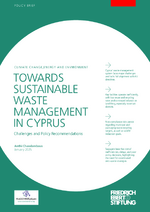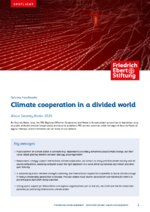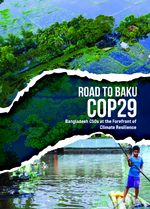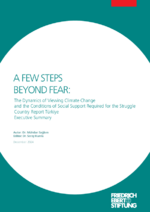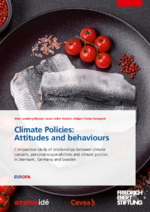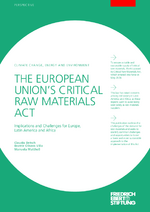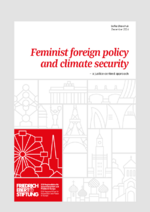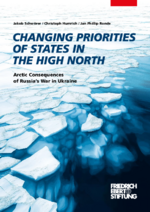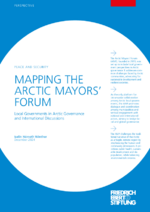Friedrich-Ebert-Stiftung@COP29
World Climate Conference COP29 |"In Solidarity with a Green World"
The UN Climate Change Conference (COP29) takes place on November 11-22, 2024, in Azerbaijan, a country known for its challenging human rights situation, allegations of corruption and a heavy dependence on oil and natural gas. The choice of venue for talks focused on conquering climate change and on the Paris climate targets that have thus far been implemented may at first seem contradictory. But it provides an opportunity to clearly illustrate the tensions between fossil fuel dependency and global climate goals.
The negotiations will focus on the question of financing global climate protection – a decisive building block of climate justice. There are significant differences among the participating countries on the issue. Additionally, it remains unclear whether enough countries will strengthen their climate action plans – or Nationally Determined Contributions (NDCs) – by the beginning of 2025 to ensure that the 1.5-degree target remains feasible. Time is of the essence: Thus far, only very few countries have established concrete plans.
Additional core objectives are:
- A global goal for climate adaptation: The establishment of adaptation goals should help countries that are particularly at risk to prepare for the consequences of climate change.
- The Gender Action Plan: This plan aims to ensure that COP resolutions are implemented in a manner consistent with gender equality.
The Friedrich Ebert Stiftung (FES), which is closely linked to Social Democracy and to the labor union movement, places a particular emphasis on a socially just transformation, the so-called Just Transition. For all negotiation topics, we examine the extent to which climate policy adheres to the requirements of social justice. The Just Transition Work Programme (JTWP) agreed to at COP28 in Dubai now requires clear, measurable targets. The definition of such objectives is an urgent task.
To ensure that Just Transition and climate justice enjoy the highest priority at COP29, we are on site with an international delegation of 40 partner organizations from civil society and trade unions. These agents of change contribute important voices and perspectives from the Global South to the negotiations in addition to strengthening both the exchange of views and networking. As such, they pave the way for a socially just transition.
In addition, we are organizing side events and sessions at the COP29 venue to drive the discussion on these key issues and draw attention to their urgency. An overview of some of our side events:
Monday, November 18th, 11:30-12:30 Azerbaijan Time (AZT) & Livestream, ILO Pavilion:
Fixing Just Energy Transition Partnerships: how to make JETPS truly inclusive, socially just and sustainableTuesday, November 19th, 12:00 – 13:30 Azerbaijan Time (AZT) & Livestream, German Pavilion:
Implementing the COP28 Energy Package: African Perspectives and opportunities for SDG7Wednesday, November 20th, 11:30—13:00 Azerbaijan Time (AZT), SIDE EVENT:
Climate, Care and GenderThursday, November 21st, 14:00 – 15:00 Azerbaijan Time (AZT), UNIDO Pavilion:
Advocacy and Activism for a Just Energy Transition
Yvonne Blos, our expert on international climate and energy policy, is accompanying the Friedrich-Ebert-Stiftung's international delegation to the World Climate Conference in Azerbaijan. She combines expertise from different regions at the global level and, together with our regional climate experts, contributes to Just Transition and climate justice playing a stronger role in international climate policy.
On this topic page FES@COP29, you will find information about the World Climate Conference, our positions and perspectives from the Global South.
#COP29 #UNFCCC #JustTransition #ClimateAction #ClimateJustice
Contact
Yvonne Blos
Policy Officer for International Energy and Climate Change Policy
Yvonne.Blos(at)fes.de
Irène Sabarly Organization
Irene.Sabarly(at)fes.de
Zina Arvanitidou
Communications
zina.arvanitidou(at)fes.de
Our delegation at the COP 29
Regional Perspectives of our FES Climate Experts
Global Perspectives on COP29
Publications
-
-
-
-
-
-
Laurberg Myssen, Stine; Anker Nielsen, Laura; Sonne Nørgaard, Asbjørn
Climate policies: attitudes and behaviours
-
Detsch, Claudia; Olivera Villa, Beatriz Adriana; Mattheß, Manuela
The European Union's Critical Raw Materials Act
-
-
Schwörer, Jakob; Humrich, Christoph; Ronde, Jan Phillip
Changing priorities of states in the high North
-
Reviews
About the Conference of the Parties (COP)
The Conference of the Parties (COP) is the annual meeting of the member states of the United Nations Framework Convention on Climate Change (UNFCCC). The UNFCCC was adopted at the UN Environmental and Development Summit in Rio de Janeiro in 1992, and the parties have met to discuss answers and solutions to fighting climate change multilaterally and at international level since 1995. Particularly far-reaching climate policy decisions were taken at the third COP (COP3) in Kyoto, known as the Kyoto Protocol, and at COP21 in Paris, which resulted in the Paris Agreement.
